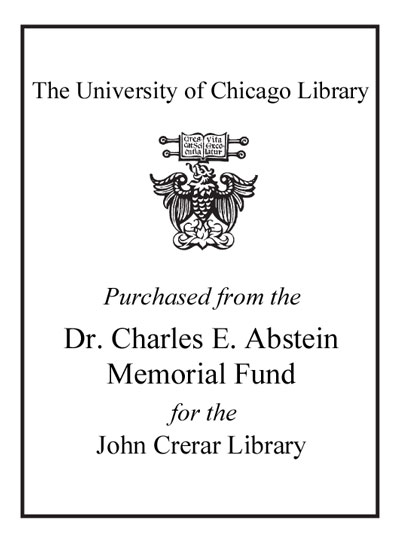Review by Choice Review
Bliss (emer., Univ. of Toronto) offers an enjoyable, lucid exploration of several milestones that transformed medicine into a life-saving science by 1922. He highlights episodes designed to show how the evolution of medicine in the late 19th century reshaped human thinking and changed a worldview, as people living in Western industrial democracies became harbingers of a new secular humanism. Using a case study of the 1885 smallpox epidemic in Montreal, Bliss demonstrates how fatalism and ethnic divisions made a preventable disease into one that killed 2 percent of the city's population in a year. He then moves to the birth of research-based medical education and the early years of the Johns Hopkins School of Medicine. The final chapter summarizes the discovery of insulin. Type 1 diabetes was a terrible affliction; doctors could prolong life a few years only by bringing the patient to a state of near-starvation. Building on earlier inroads in endocrinology, researchers isolated insulin for use in treating type 1 diabetics. Bliss argues effectively that the "born again" aspect of insulin that appeared literally to resurrect the moribund was a key turning point in a new worldview that rejected fatalism and expected life-changing intervention from medical science. Summing Up: Recommended. Upper-level undergraduates and above; general readers. J. P. Brickman United States Merchant Marine Academy
Copyright American Library Association, used with permission.
Review by Booklist Review
As a professor emeritus and medical historian at the University of Toronto, Bliss has written several volumes profiling famous physicians and their breakthrough discoveries. Expanding on his 2008 Joanne Goodman Lecture at the University of Western Ontario, Bliss borrows liberally from his previous works in recounting how doctors' roles have evolved over the last 150 years from being mere caretakers for the afflicted to trusted agents of healing. The bulk of Bliss' account reviews three significant turning points in medicine that catalyzed the transformation: an 1885 outbreak of smallpox in Montreal, the founding of Johns Hopkins Hospital in 1889, and Frederick Banting's development of insulin for treating diabetes. These events, and the painstaking research conducted by legendary physicians such as William Osler and Harvey Cushing, were crucial in shifting patients' faith in God and prayer as the primary cures for disease to faith in their medical doctors. While Bliss' slender volume is clearly biased toward Canadian history, his prose is crisp and captivating enough to appeal to both medical professionals and lay audiences beyond Canada, too.--Hays, Carl Copyright 2010 Booklist
From Booklist, Copyright (c) American Library Association. Used with permission.
Review by Choice Review
Review by Booklist Review


